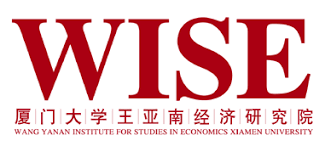Research
Publications
- Corporate Political Connections and Favorable Environmental Regulation
Co worked with Amanda Heitz and Zigan Wang.
Management Science, Volume 69, Issue 12, December 2023, 7151-7882, iii-iv.We examine whether the Environmental Protection Agency (EPA) uniformly enforces the Clean Air Act for politically connected and unconnected firms using a close election setting. We find no difference in regulated pollutant emissions or EPA investigations between the two groups, though connected firms experience less regulatory enforcement and lower penalties. These results are more pronounced for firms connected to politicians capable of influencing regulatory bureaucrats and for connected firms that are more important to their supported politicians. Taken together, our results show that campaign contributions can indirectly benefit firms by way of reduced environmental regulatory enforcement and penalties.
- The Role of Financial Constraints in Firm Investment under Pollution Abatement Regulation
Co worked with Tri Vi Dang and Zigan Wang. Journal of Corporate Finance, Volume 76, October 2022, 102252.This paper empirically analyzes pollution abatement regulation within the context of the Clean Air Act’s nonattainment status designation and shows that financial constraints are an important determinant of whether spending on mandatory pollution abatement crowds out or stimulates R&D investment and capital expenditure. We show that spending on mandatory pollution abatement and other investments are complements for financially unconstrained firms but substitutes for constrained firms. Financially unconstrained firms invest more and have lower current profits but higher future profits; financially constrained firms invest less and have stable current profits but lower long-term profits. (JEL: G32, G38, Q58).
Working Papers
- The Power of the People: Labor Unions and Corporate Social Responsibility
Co worked with Amanda Heitz and Zigan Wang.Many policymakers and practitioners argue that corporations may become more stakeholder focused if employees are given more power. We study the causal impact of unionization on stakeholders by analyzing how close labor union elections affect environmental and social (E&S) scores. We find that unionization is associated with an increase in internal social scores that primarily benefit employees and a decrease in external E&S scores that primarily benefit non-employees. The negative effects on external E&S are amplified when firms have greater financial constraints. The effects on both internal and external E&S are magnified when labor unions have more bargaining power. Our results suggest that policymakers consider implications for all stakeholders before implementing policies that prioritize the corporate influence of one stakeholder group.
